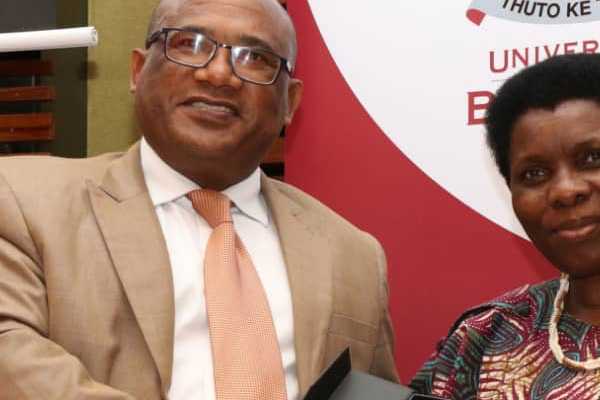PROF DUBE ELECTED VICE CHAIRPERSON OF WMO SCIENTIFIC ADVISORY PANEL
University of Botswana Associate Professor in the Department of Environmental Science, Professor Opha Pauline Dube, has been elected vice chairperson of the World Meteorological Organisation (WMO) Scientific Advisory Panel.
Professor Dube was elected last month together with Dr Gilbert Brunet, Chief Scientist and Group Executive, Science and Innovation at the Australian Bureau of Meteorology, who is the chairperson.
Professor Dube is a global environmental change scientist who has served in and led local, regional and international research initiatives, applying innovative approaches to pull together resources and motivate groups; and integrating natural and social sciences to address environmental challenges of major societal concern such as land degradation, climate change, environmental hazards and disasters and others.
She is the Co-Chair of the Scientific Advisory Committee of the Climate Research for Development (CR4D) in Africa and Co-Editor-in-Chief of the Current Opinion in Environmental Sustainability Journal. "I was pleasantly surprised first to be nominated to the WMO first Science Advisory Panel and then to be elected to the position of Vice Chair is even more humbling. "It is a great opportunity to represent the global south and hopefully inspire many women out there.
"I look forward to working with fellow Scientific Advisory Panel members and other organs of WMO to advance equity and access to meteorological science and research in the regions of WMO and embrace an integrated use-driven perspective for global adaptation and resilience building," said Professor Dube.
The new appointments are part of a wider WMO restructuring drive which seeks to embrace the public, private and academic sector in support of the science to services process and an Earth system approach to produce a wide range of multi-hazard weather, climate, water and ocean services.
As such, the election of Professor Dube and Dr Brunet to the Panel is expected to cement engagement with the broad science community and support the evolution of its mandate in weather, climate, water and related environmental and social sciences.
As part of its historical reform process, WMO established two new scientific bodies.The Scientific Advisory Panel established in 2019 and consisting of world leading scientists, serves as a major think tank giving strategic guidance in decadal timeframe. The Panel, which comprises 15 eminent international experts, is tasked with advising WMO’s Congress and Executive Council on matters concerning research strategies and the optimal scientific directions for the coming decades.
WMO also established a Research Board consisting of high-level experts on weather, climate and water research related to service and infrastructure development.“WMO is strengthening its strategic commitment to crosscutting and interdisciplinary science and deepening collaboration between the operational and research communities in order to meet the challenges and maximize the opportunities of our rapidly changing world,” said WMO Secretary General, Professor Petteri Taalas.
“The work of the Scientific Advisory Panel and the Research Board will strengthen the global standing and visibility of WMO as a hub of international cooperation in the fields of weather, climate, water and related environmental and social sciences within the United Nations,” added Professor Taalas.






